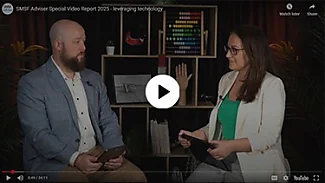SMSF spruiker cops 3-year prison sentence
A 51-year-old man has been sentenced to three years’ jail in Sydney’s Downing Centre District Court after pleading guilty to orchestrating illegal early release of super by creating a fraudulent SMSF.
Kent Nguyen was found to have created, operated and benefited from the Tot Form Super Fund, which did not comply with the relevant super legislation requirements to make it a legal SMSF.
Between 2007 and 2009, Mr Nguyen used the fund to arrange the illegal early release of super for a number of people in the community, many of whom were in financial trouble and were recommended to Mr Nguyen by word of mouth.
A total of $700,000 was withdrawn through the fund on behalf of 25 individuals who rolled their super over from retail funds, with Mr Nguyen retaining a significant amount of this sum, telling his clients the money had been paid to the ATO.
Commenting on the case, ATO assistant commissioner Ian Read said those who promoted illegal early access schemes through SMSFs would be held accountable.
“While the majority of SMSFs do the right thing, this case serves as a reminder that there are severe penalties for those who attempt to cheat the system,” Mr Read said.
“Taking your super out from any super fund early without meeting a condition of release, or encouraging others to do so, is illegal.”
Mr Read said the case also served as a reminder to consumers to be aware of their super obligations.
“There are some very limited circumstance where you may be able to withdraw your super early, but generally, you can only withdraw your super when you reach preservation age and stop working,” he said.
“Illegally accessing super early will cost people a lot more than the super they access and may get them into trouble as there are serious consequences for withdrawing super before they are legally entitled to do so. These consequences could include declaring the accessed amount as income in their income tax return, administrative penalties and disqualification from being a trustee.”
 So accessing super early = 3 years in jail but kicking the daylights out of somebody in the street causing them permanent damage is four months when you're white and daddy is a barrister? WTF is going on?
So accessing super early = 3 years in jail but kicking the daylights out of somebody in the street causing them permanent damage is four months when you're white and daddy is a barrister? WTF is going on?
0 Let's hope the DPP appeals the sentence - seems to me to be 'manifestly inadequate'.0
Let's hope the DPP appeals the sentence - seems to me to be 'manifestly inadequate'.0 Problem is - this was all 10 to 12 years ago so it has taken an extremely long time to get to this point.
Problem is - this was all 10 to 12 years ago so it has taken an extremely long time to get to this point.
Who detected the scheme anyway?0 It is good that these schemes are coming to light and that somebody was held accountable for this specific one. It is a good reminder to everyone not only to scheme promoters but for some trustees of SMSFs who treat their SMSF's money as their personal money. It should also serve as a warning to would-be-perpetrators.0
It is good that these schemes are coming to light and that somebody was held accountable for this specific one. It is a good reminder to everyone not only to scheme promoters but for some trustees of SMSFs who treat their SMSF's money as their personal money. It should also serve as a warning to would-be-perpetrators.0












